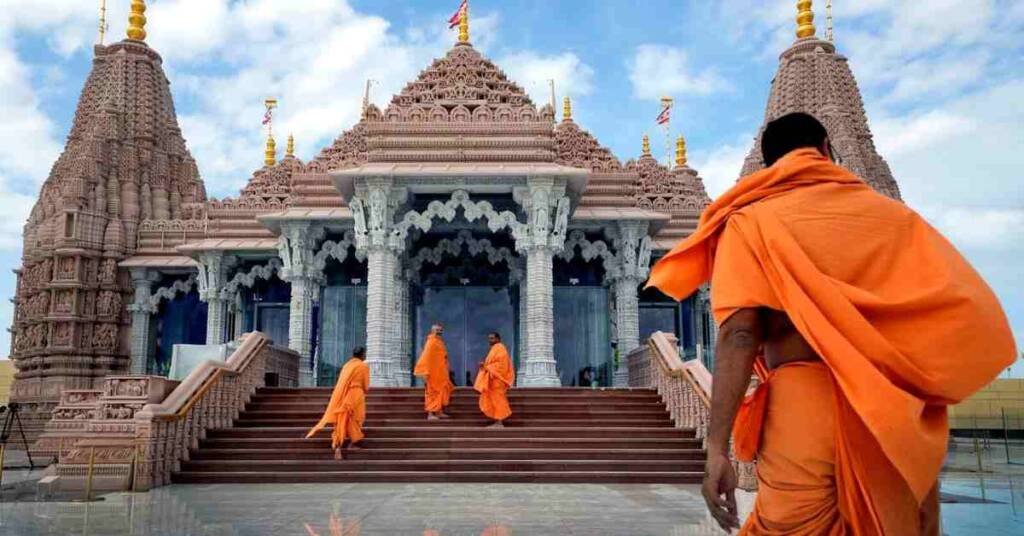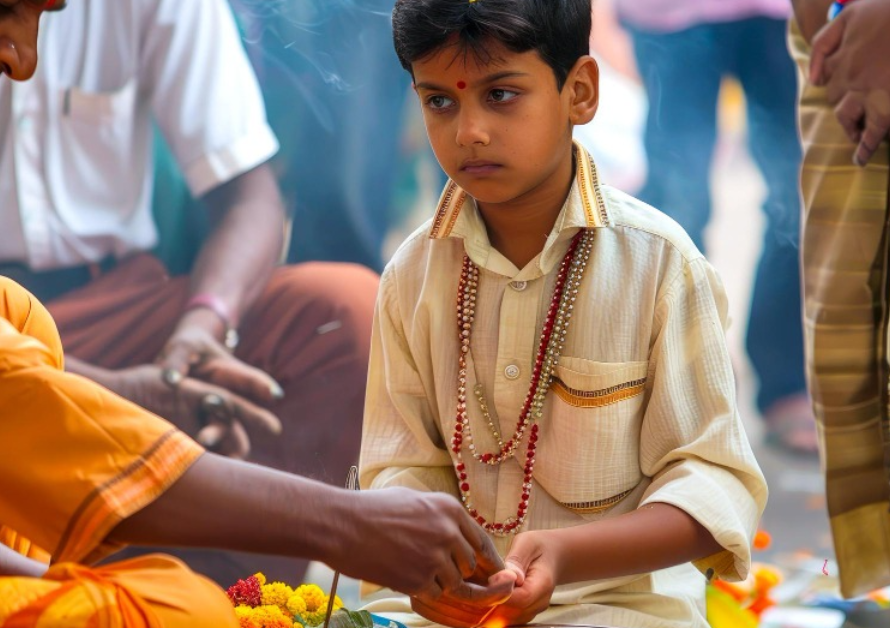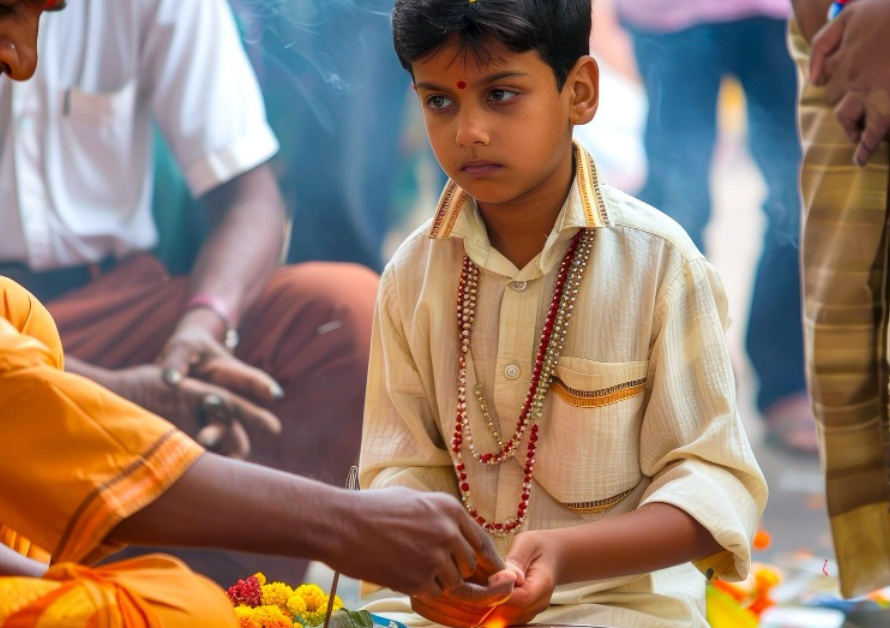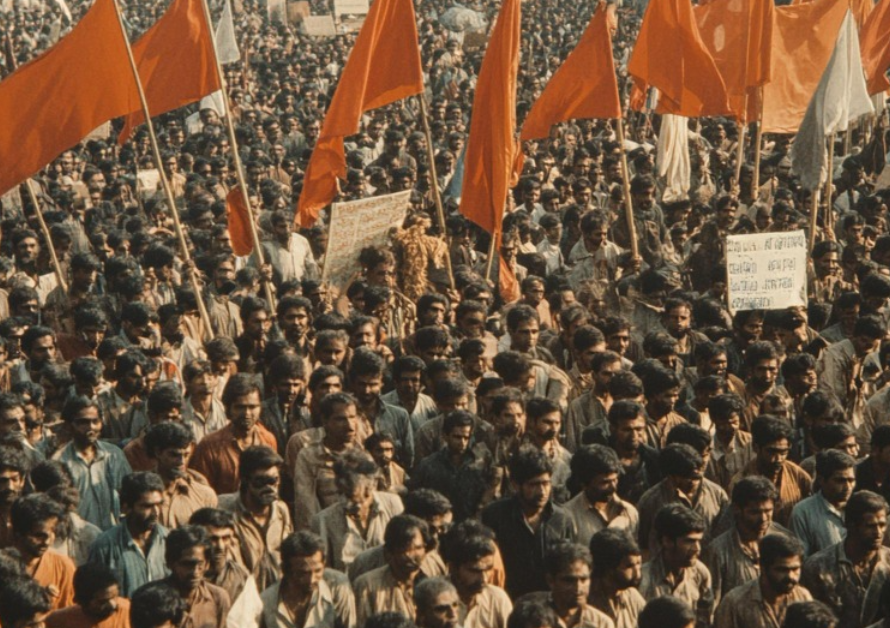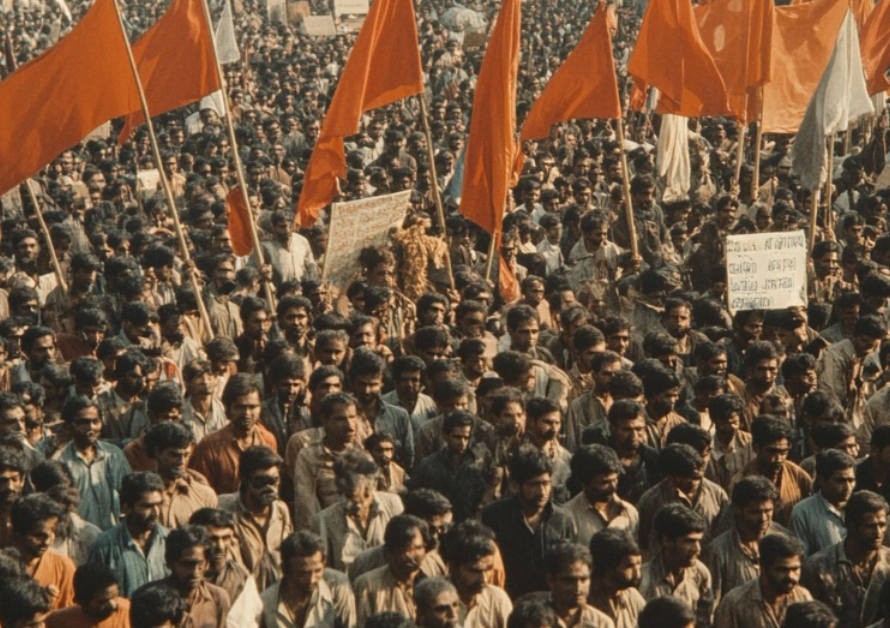Recently, several Arab ministers and sheikhs in Abu Dhabi and Dubai broke their Ramadan fast in a Hindu temple, partaking in the temple’s prasad. This event is extraordinary because, according to traditional Islamic beliefs, idol worship (butparasti) is considered haram in Islam. Despite this, influential Muslim leaders publicly breaking their fast in a Hindu temple sends a significant message against Islamic extremism.
However, this is not merely an act of religious tolerance. It also highlights a major difference in the mindset of Arab Muslims and South Asian Muslims (from India, Pakistan, and Bangladesh).
Difference in the Mindset of Arab and South Asian Muslims
1. Arab Muslims Are More Practical
- In countries like the UAE, Saudi Arabia, Qatar, Bahrain, and Oman, Islam is seen as a structured spiritual and social system, but religious extremism is not encouraged.
- The rulers and business elites in these nations have realized that for their countries to remain prosperous and developed, they must embrace religious diversity and tolerance.
- As a result, Hindu temples, churches, and other places of worship are now being built in the UAE and Saudi Arabia.
2. Rising Extremism Among South Asian Muslims
- Many Muslims in India, Pakistan, and Bangladesh are descendants of those who were forcibly converted during Islamic invasions. Their beliefs are heavily influenced by madrassas and radical Islamic organizations.
- In these countries, extremist groups receive funding from foreign sources that promote jihad and Islamic expansionism.
- In Muslim-majority areas, population growth is often used as a strategy to gradually gain political and social influence.
Where Does the Real Threat Lie: Arab Nations or Radical South Asian Muslims?
1. Arab Nations Are Distancing Themselves from Jihad and Extremism
- Countries like the UAE and Saudi Arabia have strictly controlled Islamic radicalism in recent years.
- Saudi Arabia has limited Wahhabi Islam because it recognizes that extremism poses a threat to its economic growth.
- Crown Prince Mohammed bin Salman has also curtailed the powers of the religious police, granting more rights to women and making society more open.
2. Radicalization Is Growing in South Asia
- In Pakistan, Bangladesh, and some parts of India, extremist organizations are being strengthened.
- These groups receive funding from foreign Islamic organizations to prepare the population for the establishment of an Islamic state.
- Institutions like the Zakat Foundation are training Muslim youth for IAS/IPS positions, allowing them to gain administrative control.
- The Muslim community is rapidly advancing in service sectors and small businesses, while Hindus lag behind.
Why Is This Event Significant for India?
In India, so-called “secular” governments have, for decades, provided undue protection to radicals under the guise of minority rights.
- The issues of the majority Hindu society were ignored.
- When the Modi government attempted to correct these imbalances, it was labeled an “attack on democracy.”
- Opposition parties and leftist media are attempting to portray India as becoming undemocratic, while in reality, Hindus are finally getting their rights.
- While Arab Muslims are distancing themselves from extremism, radical Muslim groups in India continue to advocate for jihad and Islamic rule.
Shouldn’t India Also Adopt a Firm Stance Against Extremism Like Saudi Arabia and the UAE?
A Lesson to Learn
If influential and wealthy Arab Muslims can break their Ramadan fast in a Hindu temple today, it shows they are moving away from extremism. However, many Muslims in South Asia are rapidly adopting radical ideologies, and India cannot afford to take this lightly.
- India must take strict action against radical madrassas and organizations.
- Hindus must become more aware and increase their participation in business and administration.
- The government must ensure that religious appeasement policies are not revived.
The breaking of the Ramadan fast in a Hindu temple in the UAE is not just an example of religious tolerance. It is also a warning that India needs to remain vigilant against extremists and strengthen its policies.
What Must We Do?
- National Awareness – Hindus must be made aware that appeasement politics can threaten their existence.
- Economic Empowerment – Hindus should actively participate in business and administration.
- Policy Reforms – The government must take strict action against radical madrassas and organizations.
- Strong Hindu Leadership – Hindus must increase their representation in political and social leadership.
- Participation in Media and Education – The Hindu community must engage more actively in media and education to present its perspectives effectively.

